What You’ll Learn About Custom Metal Fabrication
- Importance and role in precision sheet metal fabrication industry
- Techniques, materials, design, and engineering in custom metal fabrication
- Applications in various industries and future trends
Custom metal fabrication is a specialized process that involves the creation of metal structures and components according to unique specifications and designs. It plays a crucial role in various industries, providing tailored solutions for complex engineering challenges. In the precision sheet metal fabrication industry, custom metal fabrication is at the forefront of innovation and advancement, shaping the way for the production of intricate and high-quality metal parts.
Definition and Importance
Custom metal fabrication refers to the manufacturing process of creating metal parts, structures, and components tailored to specific requirements. It involves cutting, shaping, and assembling metal materials to produce custom-designed products. The importance of custom metal fabrication lies in its ability to meet the individual needs of diverse industries, delivering precise and specialized solutions that standard off-the-shelf components cannot provide.
Role in Precision Sheet Metal Fabrication Industry
Within the precision sheet metal fabrication industry, custom metal fabrication plays a pivotal role in enabling the production of intricate and high-precision metal components. It allows for the creation of custom parts that adhere to strict tolerances, ensuring the highest level of accuracy and quality in the final products.
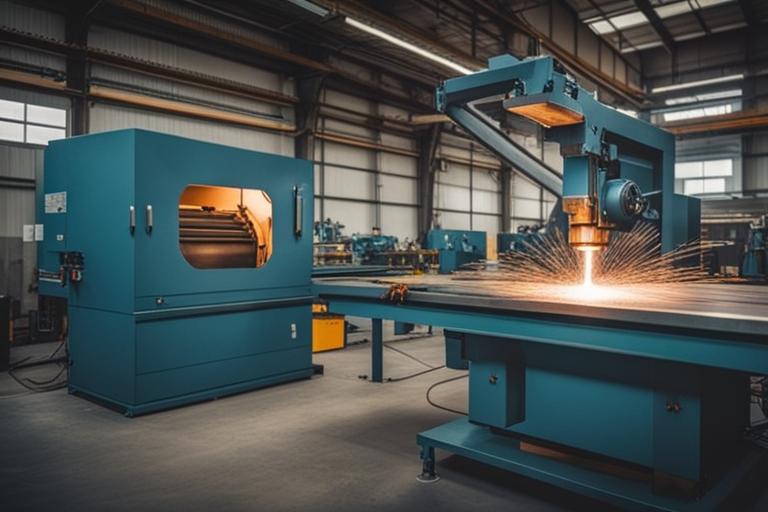
Understanding the Custom Metal Fabrication Process
The custom metal fabrication process involves multiple stages, including design, material selection, fabrication techniques, quality control, and finishing. Each step demands meticulous attention to detail and expertise to ensure that the final output meets the exact specifications and standards set forth by the client.
The Importance of Custom Metal Fabrication
Custom metal fabrication holds immense importance in various industries due to its ability to cater to unique and specialized needs. Let’s delve into the factors that underscore the significance of custom metal fabrication.
Meeting Unique Industry Needs
Custom metal fabrication is essential for meeting the unique and specific needs of industries where standard parts and components fall short. By providing tailored solutions, custom metal fabrication addresses the distinct requirements of different sectors, ranging from aerospace and automotive to electronics and medical devices.
Impact on Aerospace, Automotive, Electronics, and Medical Sectors
In the aerospace, automotive, electronics, and medical sectors, custom metal fabrication has a profound impact. These industries demand precision, reliability, and innovation, which are effectively delivered through custom metal fabrication processes. From intricate aerospace components to specialized medical device parts, custom metal fabrication shapes the advancement of these critical sectors.
Integrating Custom Metal Fabrication for Specialized Solutions
The integration of custom metal fabrication allows for the development of specialized solutions that are tailored to the unique challenges and demands of specific applications. This integration fosters innovation and pushes the boundaries of what is achievable in various industries, driving progress and advancements in engineering and technology.
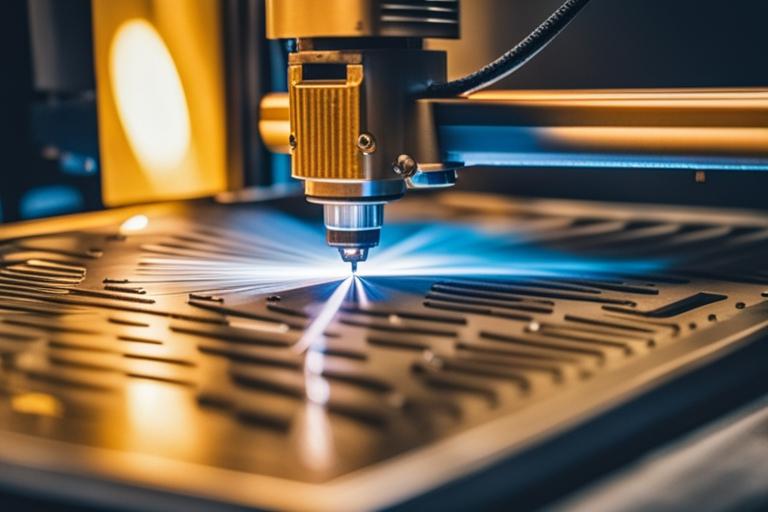
Custom Metal Fabrication Techniques
Custom metal fabrication encompasses a range of advanced techniques and processes that are vital for producing intricate and high-quality metal components. Let’s explore some of the key techniques employed in custom metal fabrication.
Laser Cutting
Laser cutting is a precise and efficient technique used in custom metal fabrication to cut complex shapes and designs from metal sheets. The high-energy laser beam ensures clean and accurate cuts, making it an indispensable process for creating intricate metal parts with tight tolerances.
CNC Machining
Computer Numerical Control (CNC) machining is widely utilized in custom metal fabrication to achieve unparalleled precision in the production of metal components. CNC machines can perform a diverse range of operations, including milling, turning, and drilling, to fabricate custom parts with exceptional accuracy.
Metal Stamping
Metal stamping involves the use of stamping presses and dies to form metal sheets into desired shapes and sizes. This technique is crucial in custom metal fabrication for creating complex and detailed metal components used in various applications.
Welding
Welding plays a fundamental role in custom metal fabrication, enabling the joining of metal parts to create assemblies and structures. Skilled welders utilize different welding methods to produce strong and durable connections, vital for the integrity of custom metal components.
Finishing Processes
Custom metal fabrication often involves various finishing processes such as grinding, deburring, and coating to enhance the aesthetics and functionality of metal parts. These finishing touches add value to the final products and ensure they meet the desired specifications.
Other Advanced Fabrication Methods
In addition to the aforementioned techniques, custom metal fabrication encompasses a wide array of other advanced methods such as waterjet cutting, metal spinning, and hydroforming, each offering unique capabilities for creating custom metal components.
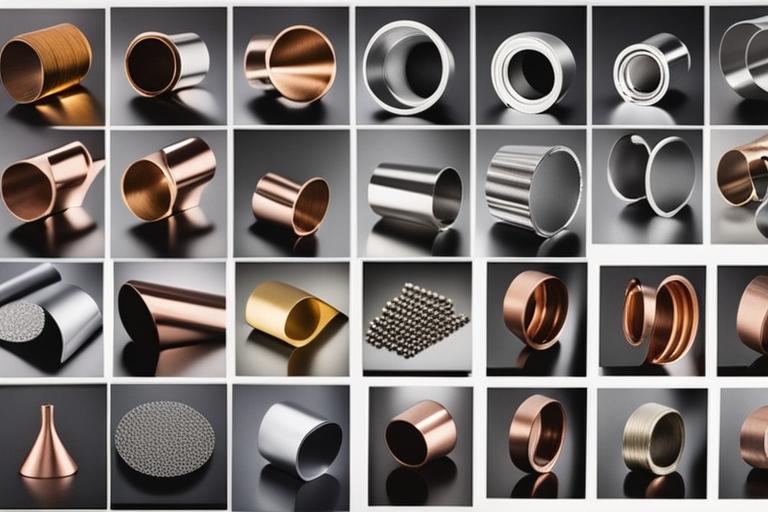
Materials Used in Custom Metal Fabrication
Custom metal fabrication incorporates a diverse range of materials, each with its unique properties and applications. Understanding the materials used in custom metal fabrication is crucial for achieving the desired performance and characteristics in the final products.
Stainless Steel
Stainless steel is a popular material in custom metal fabrication due to its corrosion resistance, strength, and aesthetic appeal. It is extensively used in various industries, including architecture, food processing, and medical equipment, where its durability and hygienic properties are highly valued.
Aluminum
Aluminum is favored in custom metal fabrication for its lightweight nature, excellent machinability, and resistance to corrosion. It finds extensive use in aerospace, automotive, and electronics industries for producing lightweight yet durable components.
Titanium
Titanium is renowned for its exceptional strength-to-weight ratio, corrosion resistance, and biocompatibility, making it a sought-after material in custom metal fabrication for aerospace, medical, and marine applications.
Copper
Copper is valued for its excellent electrical and thermal conductivity, making it indispensable in the electronics and telecommunications industries. Custom metal fabrication processes leverage copper’s properties to create intricate electrical components and conductive elements.
Other Specialty Metals
In addition to the above-mentioned materials, custom metal fabrication encompasses a wide range of specialty metals such as nickel alloys, brass, and exotic alloys, each tailored to specific applications that demand unique material properties.
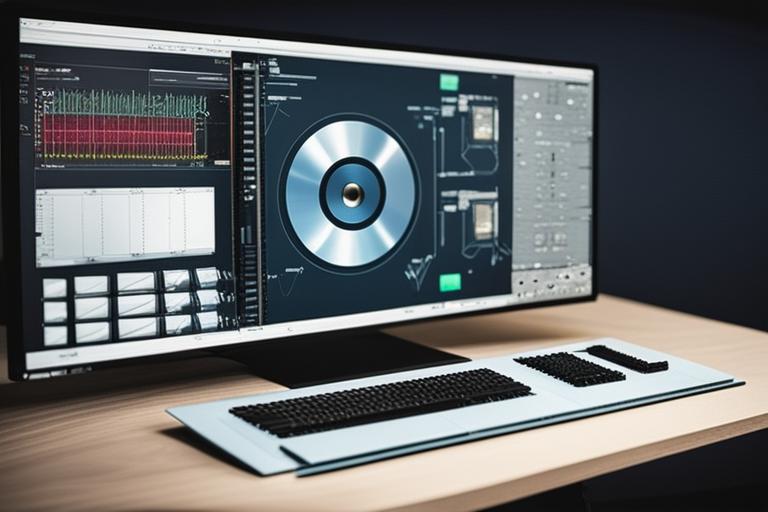
Design and Engineering in Custom Metal Fabrication
Design and engineering play a pivotal role in custom metal fabrication, influencing the functionality, manufacturability, and performance of metal components. Let’s explore the significance of design and engineering in the custom metal fabrication process.
Importance of Design and Engineering
The design and engineering phase is critical in custom metal fabrication as it lays the foundation for the entire manufacturing process. It involves conceptualizing the product, creating detailed drawings, and defining the specifications that guide the fabrication process.
CAD/CAM Software
Computer-Aided Design (CAD) and Computer-Aided Manufacturing (CAM) software are essential tools in custom metal fabrication, enabling the creation of detailed 3D models and the generation of toolpaths for machining and fabrication processes.
Prototyping
Prototyping allows for the validation of designs and the identification of any potential issues before full-scale production. It is an integral part of the design and engineering process, ensuring that the final product meets the desired requirements.
Design for Manufacturability (DFM) Considerations
Design for Manufacturability (DFM) is a key aspect of custom metal fabrication, focusing on optimizing the design for efficient and cost-effective manufacturing. DFM considerations help streamline the fabrication process and minimize the likelihood of production challenges.
Customization and Innovation in Metal Fabrication Design
Custom metal fabrication allows for extensive customization and innovation in design, empowering engineers and designers to push the boundaries of what is achievable in metal component production. This flexibility fosters creativity and leads to the creation of groundbreaking solutions.
This information has been sourced from the Precision Sheet Metal Fabrication Association.
Quality Control and Precision in Custom Metal Fabrication
Quality control and precision are non-negotiable aspects of custom metal fabrication, ensuring that the final products meet the highest standards of performance and reliability. Let’s delve into the critical considerations in maintaining quality and precision in custom metal fabrication.
Stringent Quality Control Measures
Custom metal fabrication demands stringent quality control measures at every stage of the manufacturing process. From material inspection to final product testing, adherence to rigorous quality standards is imperative to deliver superior metal components.
Precision Standards
The precision standards in custom metal fabrication are exceptionally high, requiring meticulous attention to detail and precision in every aspect of the fabrication process. This precision ensures that the finished components meet the exact specifications and tolerances set forth by the client.
Ensuring High-Quality Metal Components
Achieving high-quality metal components necessitates a comprehensive approach that encompasses advanced manufacturing techniques, skilled craftsmanship, and rigorous quality checks. This commitment to excellence is fundamental to meeting the performance requirements of custom metal parts.
Quality Assurance in Custom Metal Fabrication
Quality assurance involves the implementation of processes and systems to guarantee the quality and reliability of custom metal components. It involves continuous monitoring, documentation, and corrective actions to uphold the highest standards throughout the fabrication process.
This information has been sourced from the Fabricators & Manufacturers Association, International.
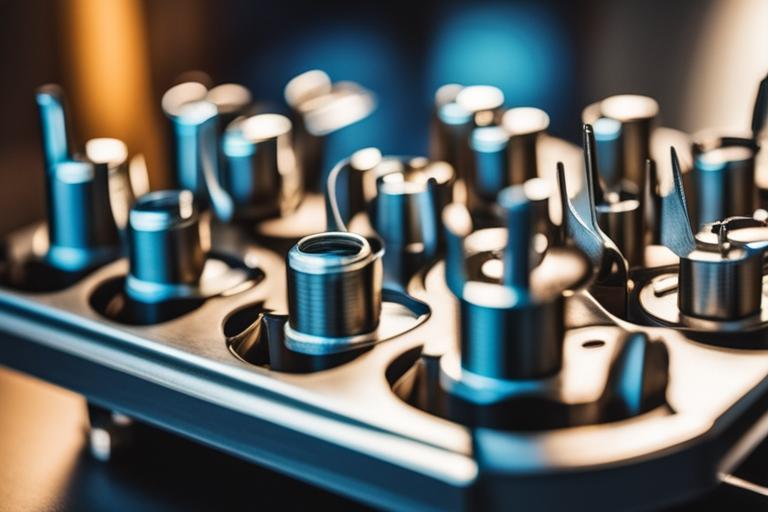
Applications of Custom Metal Fabrication
Custom metal fabrication finds extensive applications across diverse industries, contributing to the development of cutting-edge products and solutions. Let’s explore the wide-ranging applications of custom metal fabrication.
Telecommunications
In the telecommunications industry, custom metal fabrication is instrumental in producing specialized enclosures, racks, and components that house and protect sensitive electronic equipment, ensuring optimal performance and reliability.
Defense
Custom metal fabrication plays a critical role in the defense sector, providing precision components and assemblies for military applications, including armored vehicles, weaponry, and communication systems.
Renewable Energy
In the renewable energy sector, custom metal fabrication is essential for manufacturing components used in solar panels, wind turbines, and energy storage systems, contributing to the advancement of sustainable energy solutions.
Medical Devices
Custom metal fabrication is integral to the production of medical devices and equipment, ranging from surgical instruments and implantable devices to diagnostic tools, where precision and biocompatibility are paramount.
Custom Metal Fabrication in Various Industries
Custom metal fabrication extends its influence to a myriad of other industries, including architecture, transportation, industrial machinery, and consumer goods, where its tailored solutions cater to diverse and complex requirements.
Custom Metal Fabrication for Specific Industries
Custom metal fabrication is tailored to meet the unique demands of specific industries, delivering specialized solutions that drive innovation and progress. Let’s explore the application of custom metal fabrication in key industries.
Aerospace
In the aerospace industry, custom metal fabrication is crucial for producing lightweight, high-strength components used in aircraft, spacecraft, and satellites, where precision and reliability are paramount.
Automotive
Custom metal fabrication contributes to the automotive industry by providing custom parts and assemblies that enhance vehicle performance, safety, and aesthetics, meeting the stringent requirements of automotive manufacturers.
Electronics
In the electronics industry, custom metal fabrication supports the production of enclosures, heat sinks, and custom components that ensure the efficient operation and protection of electronic devices and systems.
Medical Sector
Custom metal fabrication is indispensable in the medical sector, delivering precision-engineered components and assemblies that meet the stringent standards of medical device manufacturers, contributing to advancements in healthcare technology.
Custom Solutions for Diverse Industries
Custom metal fabrication offers tailored solutions for a diverse array of industries, including marine, energy, and consumer goods, where its specialized capabilities address the unique challenges of each sector.
Choosing a Custom Metal Fabrication Partner
Selecting the right custom metal fabrication partner is crucial for achieving the desired results and ensuring a successful collaboration. Several key factors should be considered when choosing a custom metal fabrication partner.
Capabilities and Experience
The capabilities and experience of a custom metal fabrication partner are paramount. An experienced fabricator with diverse capabilities can effectively handle complex projects and deliver high-quality results.
Certifications and Standards
Certifications and adherence to industry standards demonstrate a fabricator’s commitment to quality and compliance. It is essential to partner with a fabricator that upholds the necessary certifications and standards relevant to the industry and application.
Customer Testimonials
Customer testimonials and case studies provide valuable insights into a fabricator’s track record and ability to meet client expectations. Positive feedback and successful projects serve as indicators of a fabricator’s reliability and competence.
Collaboration and Communication with Metal Fabricators
Effective collaboration and clear communication are essential for a successful partnership. A fabricator that values open communication and collaborative engagement can ensure that the project requirements are met with precision and efficiency.
Future Trends in Custom Metal Fabrication
The future of custom metal fabrication is poised for innovation and advancement, driven by emerging trends and technological developments that are reshaping the industry. Let’s explore the key trends shaping the future of custom metal fabrication.
Additive Manufacturing
Additive manufacturing, also known as 3D printing, is revolutionizing custom metal fabrication by enabling the production of complex geometries and structures with unprecedented design freedom and efficiency.
Automation
Automation technologies are streamlining custom metal fabrication processes, enhancing productivity, and reducing lead times, while ensuring consistent quality and precision in metal component production.
Sustainable Practices
The adoption of sustainable practices in custom metal fabrication, such as recycling and energy-efficient manufacturing processes, is driving the industry towards environmentally conscious and responsible manufacturing.
Technological Advancements in Metal Fabrication
Technological advancements, including advanced materials, simulation software, and IoT integration, are reshaping custom metal fabrication, paving the way for more efficient and innovative manufacturing solutions.
Case Studies and Success Stories
Real-world case studies and success stories showcase the transformative impact of custom metal fabrication, highlighting innovative solutions and exemplary projects that have pushed the boundaries of what is achievable in metal component production.
Real-world Examples
Real-world examples demonstrate how custom metal fabrication has been instrumental in solving complex engineering challenges and delivering tailored solutions across diverse industries.
Innovative Solutions
Innovative solutions achieved through custom metal fabrication underscore the industry’s capacity for creativity, problem-solving, and pushing the boundaries of what is achievable in metal component production.
Custom Metal Fabrication Projects
Custom metal fabrication projects exemplify the diverse applications and capabilities of the industry, showcasing the intricate and high-quality components produced through tailored fabrication processes.
Conclusion
Custom metal fabrication is a pivotal force in driving innovation and delivering specialized solutions tailored to the unique needs of diverse sectors. Its impact is felt across critical industries, shaping the future of engineering and technology through precision sheet metal fabrication.
As a dynamic and evolving field, custom metal fabrication continues to push the boundaries of what is achievable, setting the stage for groundbreaking advancements and transformative solutions.
This ultimate guide has provided a comprehensive overview of the processes, techniques, applications, and future trends in the industry, highlighting its pivotal role in shaping the industrial landscape and driving progress.
For further information and to explore how custom metal fabrication can meet your specific needs, please contact us to learn more about our capabilities and how we can assist in your projects.
FAQ
What is precision sheet metal fabrication?
Precision sheet metal fabrication is the process of shaping and manipulating sheet metal to create custom parts with high accuracy.
Who can benefit from custom metal fabrication?
Industries such as automotive, aerospace, electronics, and medical can benefit from custom metal fabrication for unique parts and components.
How does custom metal fabrication differ from standard fabrication?
Custom metal fabrication involves creating unique, specialized parts to precise specifications, unlike standard fabrication which produces mass-produced items.
What are the advantages of precision sheet metal fabrication?
Precision sheet metal fabrication offers high-quality, bespoke parts with tight tolerances, ensuring exact fit and functionality for specific applications.
How can I ensure the quality of custom metal fabrication?
To ensure quality, it’s important to work with a reputable fabrication company that has experience, skilled technicians, and quality control processes in place.
But isn’t custom metal fabrication more expensive?
While custom metal fabrication may have higher initial costs, it offers long-term benefits such as tailored solutions and efficient part production.
